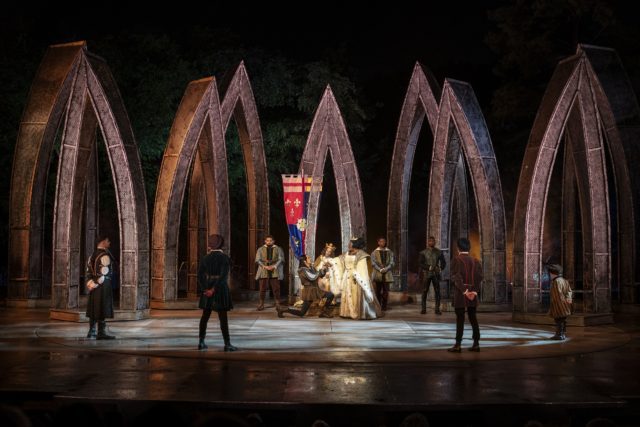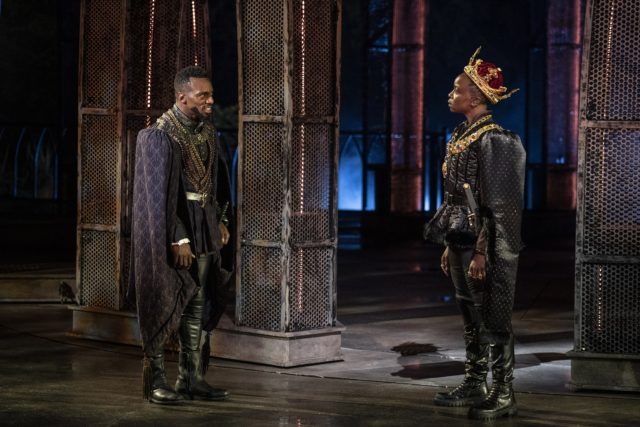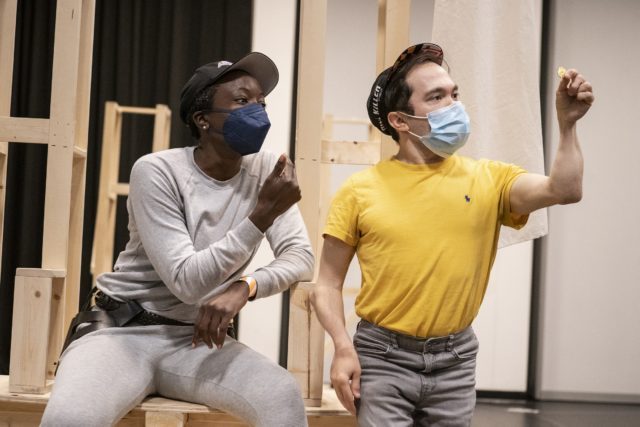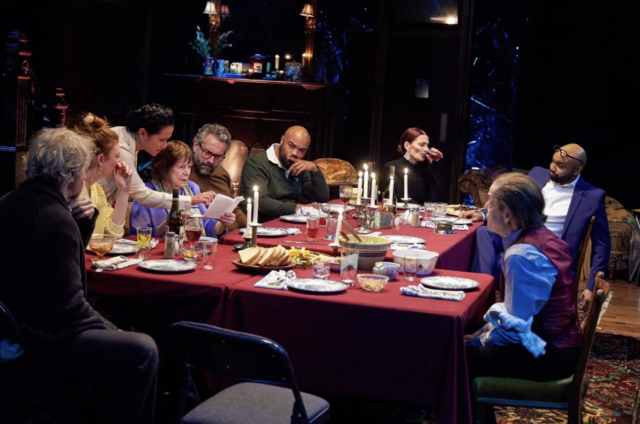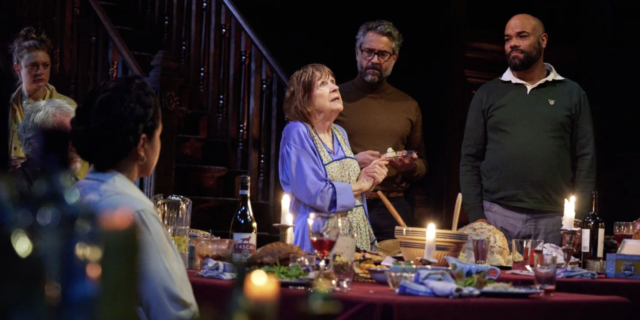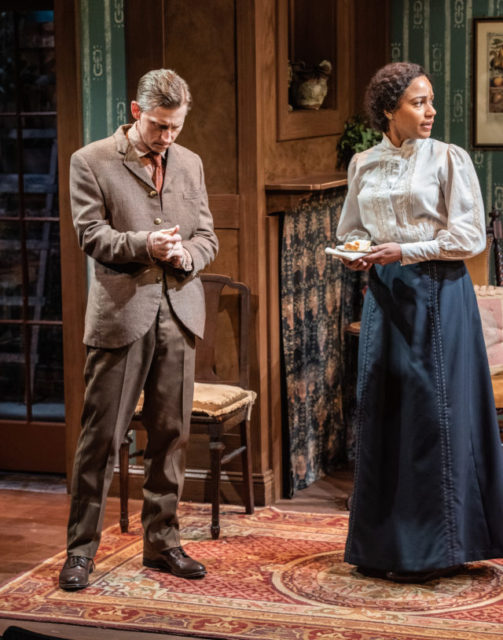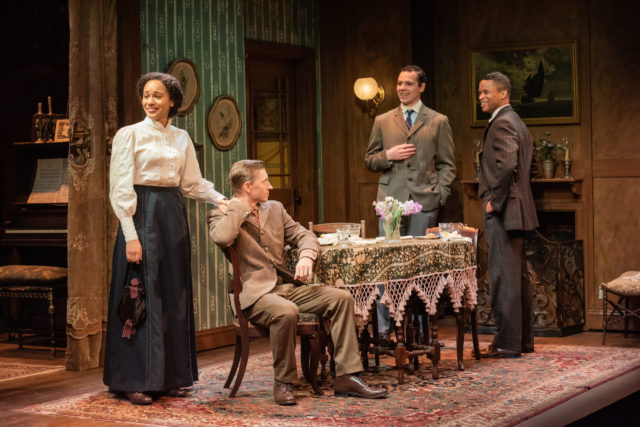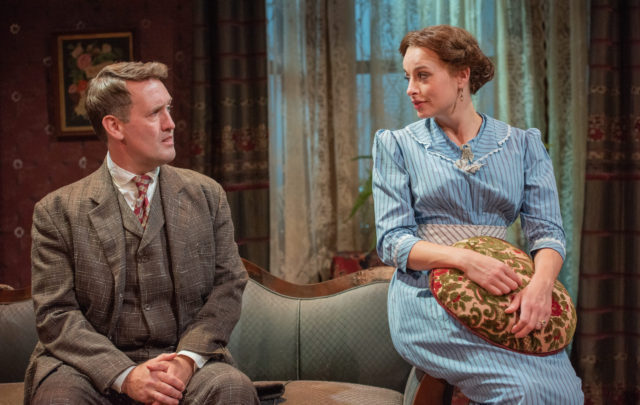
Who: Anthony Rapp, LaChanze, Andrew Barth Feldman, Carolee Carmello, Ben Cameron, Erin Quill, Fredi Walker-Browne, Julie White, Telly Leung, Ilana Levine, Jacqueline B. Arnold, Jennifer Ashley Tepper, Vanessa Williams, Judy Kuhn, Lesli Margherita, Nik Walker, Ryann Redmond, Thayne Jasperson, Hillary Clinton, more
What: BroadwayCon 2022
Where: Manhattan Center, 311 West Thirty-Fourth St., and the New Yorker Hotel, 481 Eighth Ave.
When: July 8-10, day passes $80, general pass $200, gold pass $425, platinum pass $1,250
Why: BroadwayCon is back with an in-person edition taking place July 8-10 at the Manhattan Center and the New Yorker Hotel, right by Madison Square Garden and Penn Station and just a few blocks south of the Theater District. This year’s edition includes panel discussions, interviews, live performances, podcasts, a cosplay contest, workshops, photo and autograph sessions, singalongs, meetups, and celebrations of and inside looks at such shows as A Strange Loop, Six the Musical, Chicago, POTUS, Dear Evan Hansen, Beetlejuice, Thoughts of a Colored Man, Kimberly Akimbo, SpongeBob SquarePants, Harry Potter and the Cursed Child, The Kite Runner, Assassins, and Hamilton.
Among those participating at the three-day festival are Anthony Rapp, LaChanze, Carolee Carmello, Ben Cameron, Erin Quill, Julie White, Telly Leung, Vanessa Williams, Judy Kuhn, Lesli Margherita, and Hillary Clinton, talking about such topics as racial and gender diversity, disability, understudies, anxiety, body positivity, and Stephen Sondheim.
Below are select highlights for each day:
Friday, July 8
Ensemble screening, with Telly Leung, 10:00 am, followed by a talkback at 11:20, Crystal Ballroom, the New Yorker Hotel
BroadwayCon 2022 Opening Ceremony, with Ben Cameron, Manhattan Center Grand Ballroom, 12:40
Here’s to the Ladies: Hillary Rodham Clinton Live at BroadwayCon, with LaChanze, Julie White, and Vanessa Williams, moderated by Hillary Clinton, Manhattan Center Grand Ballroom, 1:00
Making a Living and Having a Life in Theatre Production, with Jameson Croasdale, Mary Kathryn “MK” Blazek, Rebecca Zuber, Lauren Parrish, and Gary Levinson, moderated by Naomi Siegel, Sutton Place Suite, the New Yorker Hotel, 2:20
Lights, Overture, Stage Fright! Breaking Down Performance Anxiety, with Kira Sparks, Sutton Place Suite, the New Yorker Hotel, 3:40

POTUS is one of several Broadway shows that will be featured at BroadwayCon (photo by Paul Kolnick)
Saturday, July 9
Black Lives Matter on Broadway, with T. Oliver Reid, Britton Smith, Emilio Sosa, Michael Dinwiddie, and Lillias White, moderated by Linda Armstrong, New Yorker Hotel Grand Ballroom, 10:00
Broadway Livestreaming: Expanding the Reach of Live Theatre, with Timothy Allen McDonald, Sean Cercone, Luke Naphat, Tralen Doler, Nathan Gehan, and Jen Sandler, moderated by Joshua Turchin, Gramercy Park Suite, the New Yorker Hotel, 11:20
Getting the Show Back on the Road: The Pandemic and Its Impact on Touring Broadway, with Jacob Persily, Sutton Place Suite, the New Yorker Hotel, 2:20
Paul Gemignani and Sondheim’s Musical Legacy, with Margaret Hall and Meg Masseron, Crystal Ballroom, the New Yorker Hotel, 3:40
BroadwayCon Cabaret, with special secret guest, hosted by Ben Cameron, Manhattan Center Grand Ballroom, 5:00
Sunday, July 10
Cheers to Understudies: The Broadway Cast Live!, with Amber Ardolino, Mallory Maedke, Tally Sessions, and Lauren Boyd, hosted by Ben Cameron, New Yorker Hotel Grand Ballroom, 10:00
Body Liberation on Broadway, with Amara Janae Brady, Shantez M. Tolbut, and Evan Ruggiero, moderated by Stephanie Lexis, Gramercy Park Suite, the New Yorker Hotel, 10:00
Directors on Debuts, with Zhailon Levingston and Tina Satter, moderated by Zeynep Akça, Crystal Ballroom, the New Yorker Hotel, 1:00
Tell Me More! Tell Me More!, special guests TBA, Manhattan Center Grand Ballroom, 2:20
Broadway Anecdotes II: Golden Age Gossip, with Kenneth Kantor, Joshua Ellis, and Mimi Quillin, moderated by Ken Bloom, Gramercy Park Suite, the New Yorker Hotel, 5:00

